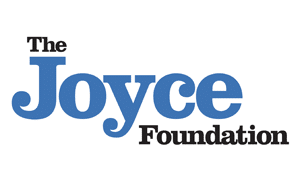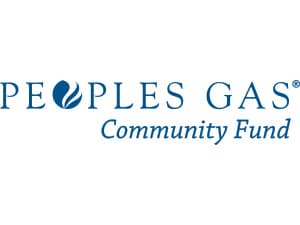The incredible turnout at our 23rd Annual Luncheon at the Hyatt Regency Chicago reminded us just how powerful our community can be when we come together in service of our youngest learners and the families who raise them.
Held at a moment in time when early childhood programs—especially Head Start—are facing threats to funding, this year’s luncheon was more than a celebration, it was a call to action. As a community, we reaffirmed our shared commitment to building strong beginnings for every family, starting before birth.
Mary Hasten, Start Early’s Chair of the Board, welcomed a room filled with both long-time supporters and new champions of early childhood education. “Today reminds me of the power of collective voice and why we must continue to speak out and stand strong for families,” she shared. This year’s theme, Nurture the Early Years & Empower Families to Thrive, captured that sentiment perfectly—uplifting Start Early’s mission to equip parents with the tools, knowledge and support to raise resilient, healthy children.
In her heartfelt remarks, Celena Sarillo, Executive Director Start Early Illinois, spoke about her beginnings as a Head Start social worker and the deep impact those early experiences had on her career and personal mission. “In many circumstances, doulas and home visitors are a new mother’s only unfailing source of encouragement, safety and reassurance,” she shared. “They are often the first and only person invited into a family’s personal space and trusted to hold and care for their most precious possession—their new baby.”
This is a powerful reminder: Head Start is not just a program—it is a promise to families. A promise we must continue to keep.
We would like to extend a heartfelt thank you to our Luncheon Chair Luncheon Chair Darrel Hackett, U.S. CEO, BMO. Darrel emphasized the power of long-term partnerships in building fair systems of care. Through Start Early’s collaboration with BMO and other civic and philanthropic leaders, we have seen tangible progress—like helping secure $1.13 billion in early childhood funding across 23 states.
Darrel’s participation in this year’s luncheon was special as he shared, he was a child who attended a Head Start program, he spoke to the lasting impact quality early education can have—not just for one generation, but for many.
We were honored to hear from keynote speaker Dr. Catherine Monk, a leading expert in women’s mental health and fetal brain development. Her keynote grounded our work in science, showing how early life experiences—including maternal well-being—shape brain development and long-term mental health. Her message was clear: starting early is not just ideal, it is essential.
I was thankful to be able to close with remarks reminding the room of why our work in early childhood is so important, “As many of you who’ve attended these luncheons over the years know, healthy, thriving babies become curious, confident toddlers, industrious preschoolers, well-prepared kindergarteners, successful students and then the capable adults who power our economy, sustain our democracy, and secure our future. It’s why we consider early education and care a public good, one that has perhaps the highest return on investment of any publicly funded program.”
Strong organizations drive strong outcomes. Your support ensures Start Early can meet the moment, today and for generations to come. That is why we are asking our community to act.
“We’re powering a movement to start earlier when caring for and protecting our little ones,” said Celena. But we cannot do it alone:
- You can still show your support by making a donation today and help us expand critical programs like doula and home visiting services.
- Sign up for our advocacy alerts to stay informed on early childhood policy.
- Share our mission with your network to grow the movement.
We are incredibly grateful for the tremendous support and generosity of our donors and event sponsors who helped us raise $1.1 million.
From all of us at Start Early, thank you for walking alongside us. Together, we can continue to nurture the early years—and empower every family to thrive.













